Your Path to SUCCESS
BIOLOGY AND ENVIRONMENTAL SCIENCE



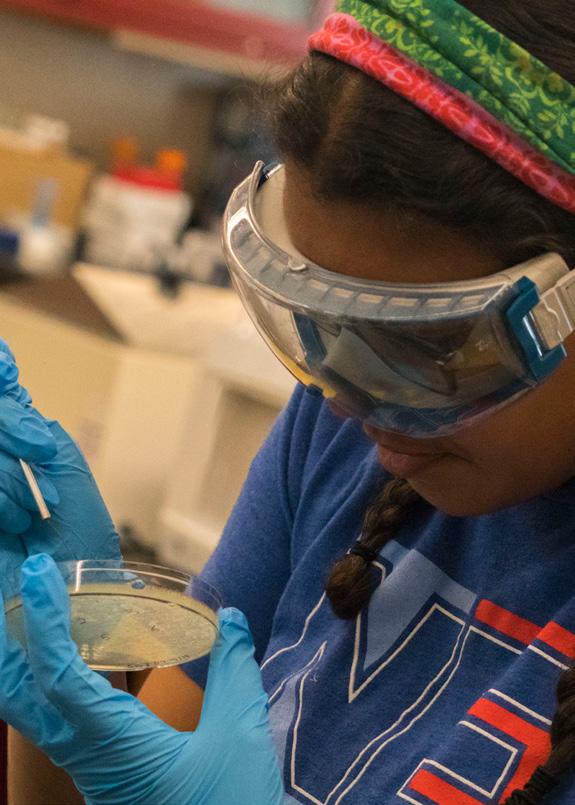
Biology majors investigate the interconnected processes that shape the living world through a wide range of interdisciplinary courses. Lab-based courses ensure all majors are proficient in research skills, and many continue working 1:1 with faculty on research leading up to senior theses. Environmental Science majors discover how humans affect nature and learn how to protect the environment in careers as scientists, policymakers, or educators. At RWU, students publish papers, present at conferences, and contribute to scientific advances. Our graduates go on to succeed in medical professions, work at the forefront of climate change research, and make a difference through science in action.

Biology and Environmental Science students participate in community-engaged projects and internships during their undergraduate studies, giving them the skills and diverse experiences that are most desirable for employers and graduate school admission.
Our graduates found success in employment or in graduate school within 6 months of graduation.
Each academic year, over 80 students conduct research with faculty and/ or care for organisms in our labs. Students are encouraged to participate in graduate-level research opportunities starting in their first year.
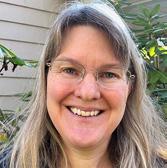

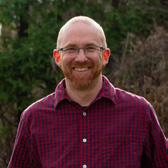
» Research Interests: Soil ecology; Urban ecology; Biodiversity studies; Sustainability and Ecosystem services.
» Student Research Opportunities: Investigations of soils, earthworm and arthropod communities on RWU campus; Relationships between earthworms and biogeochemical cycling; Effects of urban land cover management on ecosystems; Sustainable landscape and building design and management.
» Research Interests: Novel therapies to manage amebiasis; Molecular Microbiology; Origin and evolution of anaerobic pathways; Evolution/science literacy.
» Student Research Opportunities: Identification and testing of natural and synthetic anti-amebic drugs; Mechanism of action of anti-amebic drugs; Using protists as models for exploring the impact of climate change; Scientific assessments of student/faculty views on evolution, Science and anti-intellectualism movements.
» Research Interests: Coevolution of bacteria and viruses; Diversity and distribution of marine viruses; Viral genome evolution.
» Student Research Opportunities: Evolution of viral virulence; Isolation and identification of marine viruses; Kinetics of viral infection; Viral genome evolution; Horizontal gene transfer of viral genes.
Genetic counseling has a very large biology component, which is where my professor has helped me so much. During my senior year, I worked in his lab on genetics, which made me love doing research and inspired me to look for research jobs specifically.
CALLIE SULLIVAN ’22 BIOLOGY
Research Technician at Massachusetts General Hospital in Boston, MA

Undergraduate research at RWU changed my entire educational experience. It taught me a lot more about my field, and it is why I got into my Ph.D. program.
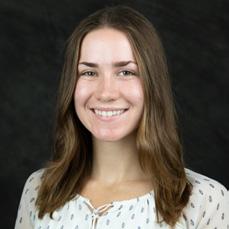
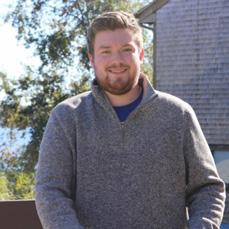
MARY D’ANGELO ‘21 BIOLOGY
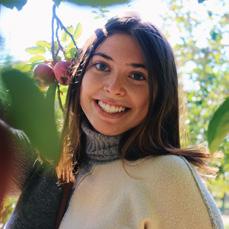
Ph.D Program in Biomedical Sciences at the University at Buffalo in Buffalo, NY
I did research at Roger doing water quality testing of the bay water. I was sampling water using professional methods and learned different ways of testing. That turned into an interest in water quality.
SEAN NUGENT ‘20
ENVIRONMENTAL SCIENCE
Water Quality Technician at SafeWell in Bolton, MA
Students earn academic credit for doing research, developing proposals and competing for small grants to fund their projects. They present their findings at regional, national and international conferences, where they network with experts and gain important connections for careers and graduate study opportunities. Our program focuses on how scientists’ work positively impacts society. Students test new anti-amoebic drug candidates, explore animal microbiomes, study evolution of photosynthesis in plants, and identify genes involved in aging, among many others.
Some recent projects include:
» Genetics and evolution of marine viruses
» Biotechnology of anti-amebic drugs
» Ecotoxicology of heavy metals
» Developmental genetics
» Molecular genetics of aging and longevity
» Evolution of photosynthetic pathways in plants
» CRISPR gene editing
» Soil invertebrates
We offer individualized advising and guidance for students planning for health professions careers requiring advanced, specialized training and graduate school education. Our advisors assist students interested in medicine, dentistry, pharmacy, veterinary care and more. Advising happens throughout your academic pathway, beginning with career exploration and course selection, and culminating with internship and practicum opportunities and the graduate school admission process.
You’ll have the opportunity to take your learning aboard - for a whole semester or during a school break. From winter intersession programs in Belize focusing on Tropical Ecology, to carrying out fieldwork in the Yellowstone ecosystem of the Rocky Mountains during the summer, to performing community health outreach over spring break – you’ll have many choices to expand your studies.
The Marine and Natural Sciences building is equipped with advanced laboratory research space along with an Aquatic Diagnostic Laboratory and a greenhouse. The facilities house advanced research instruments including real-time PCR machines, fluorescence and confocal microscopes, cell culture facilities, and a flow cytometer. Our researchers utilize model organisms including bacteria, yeast, round worms, fruit flies, amoeba, and zebrafish, and also study terrestrial and marine microbes, invertebrates, desert plants, and macroalgae.
Students with an interest in marine and/or biomedical sciences are eligible to apply for Rhode Island Summer Undergraduate Research Fellowships (SURFs). These competitive fellowships provide students in the state of Rhode Island with a stipend to conduct research during the summer.
Instead of taking eight years to earn a Pharm.D., the 3+4 Biology-Pharm.D. dual degree program enables students to earn a B.S. in Biology at RWU and a Pharm.D. from the Albany College of Pharmacy and Health Sciences in only seven years.